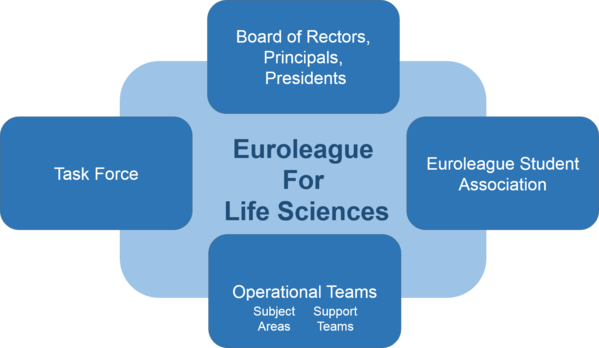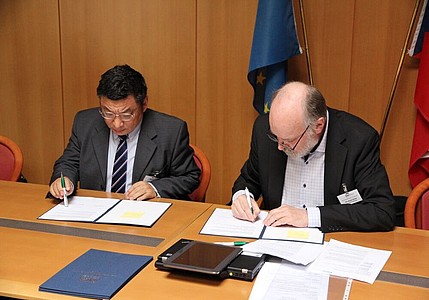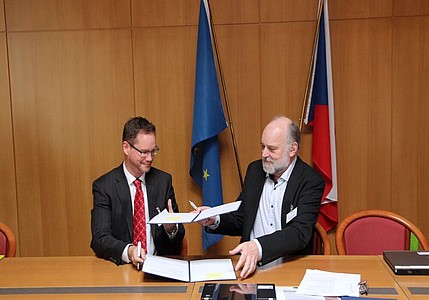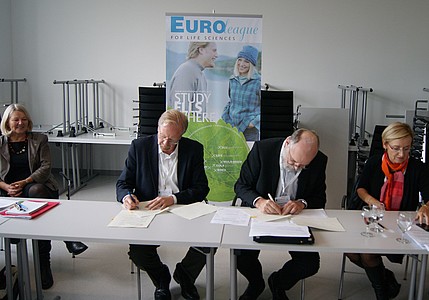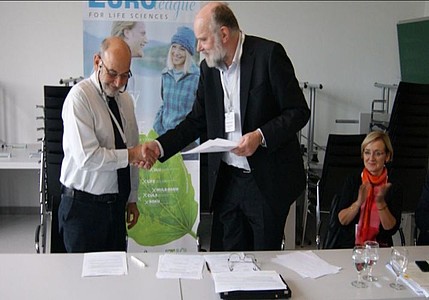Structure and Objectives
The Euroleague for Life Sciences (ELLS) is a network of leading universities cooperating in the fields of Natural Resource Management, Agricultural and Forestry Sciences, Life Sciences, Animal Sciences, Food Sciences, Environmental Sciences and Rural Development, incl. Agricultural Economics or Rural Sociology.
ELLS is defined as a European network, and institutions eligible for an ELLS membership are universities of:
- EU countries
- Prospective EU countries
International (non-European) partners are thereby not eligible for an ELLS membership but an ELLS partnership. A clear definition thereby exists between member universities and partner universities within the ELLS network.
The inclusion of international partners is a new initiative within the ELLS network. The ELLS Board decided to establish “International Partnerships” of ELLS during the ELLS Spring meeting in 2011. Further amendments were made by the Board during the ELLS Conference in 2011.
The first international partnership agreements with Lincoln University, New Zealand, China Agricultural University, Beijing, Hebrew University of Jerusalem (Robert H. Smith Faculty of Agriculture, Food and Environment) and Cornell University (College of Agriculture and Life Sciences) were signed during the ELLS Spring meeting resp. the ELLS Conference in 2013.
The focus of ELLS is on joint teaching and learning, student and staff mobility, and quality assurance. These activities will result in highly qualified graduates, who are prepared for the demands of the European and international market. Furthermore, through the sharing of expertise and resources, this network will enhance the national and international position and potential of all partner universities, as part of the development and implementation of their degree programmes.
The objectives of ELLS are:
- to offer students additional values by expanding existing activities and by developing new joint programmes in the field of Life Sciences
- to support the high quality of education by the sharing of expertise and facilities
- to provide transparent and easily accessible information about joint ELLS study programmes
- to increase student mobility by simplifying the process of student exchange
ELLS Board
- Rectors/principals/presidents of the ELLS member universities
- decision making body, meets once a year
ELLS Task Force
- consists of one representative of each university, meets at least twice a year
- coordinates ELLS activities
- develops strategy and policy issues
- communicates the activities of the network on university, national, and international levels
Euroleague Student Association
The Euroleague Student Association, ELSA, is the voice of the students within the network. ELSA-representatives participate in meetings of all organisational levels. ELSA has one vote on the ELLS Board and two votes on the Task Force.
Subject Areas are formed by academic staff members of all partner universities and are responsible for the development of joint teaching programmes.
Support teams deal with horizontal topics that are related to the aims of the Euroleague for Life Sciences such as legal aspects, quality assurance, e-learning, student mobility, etc.
